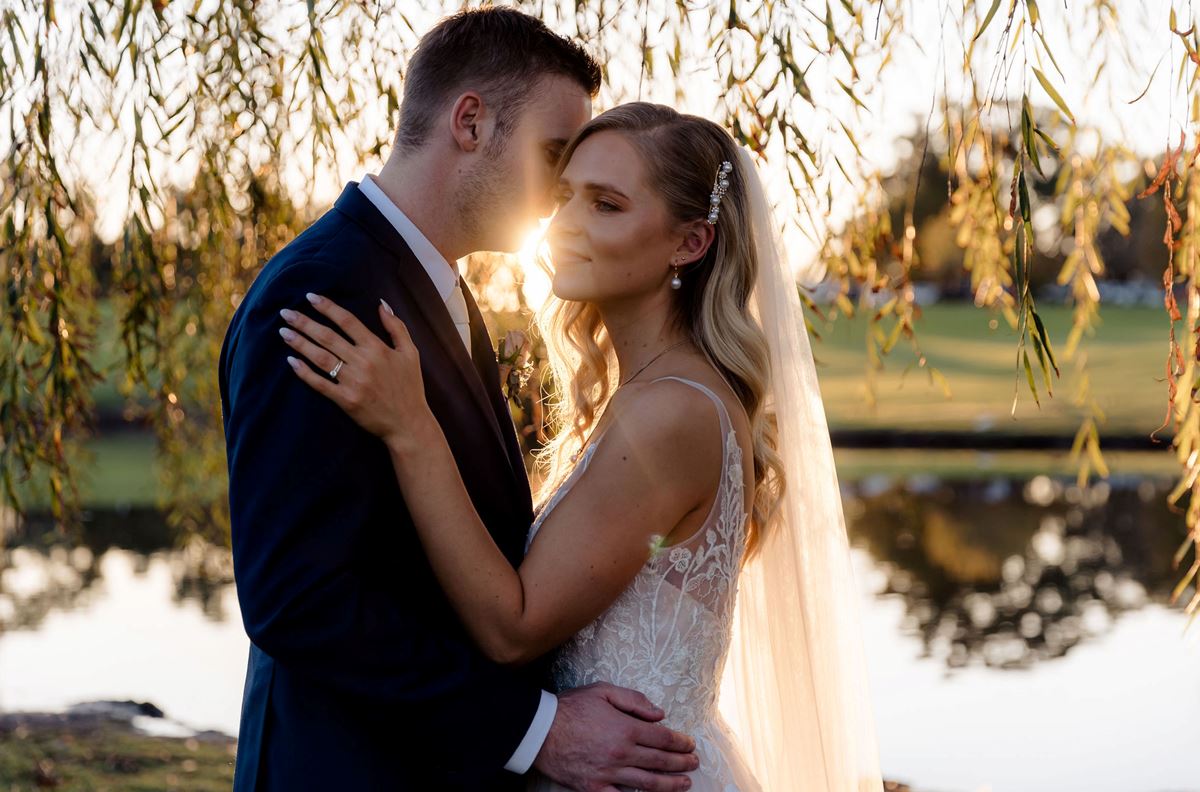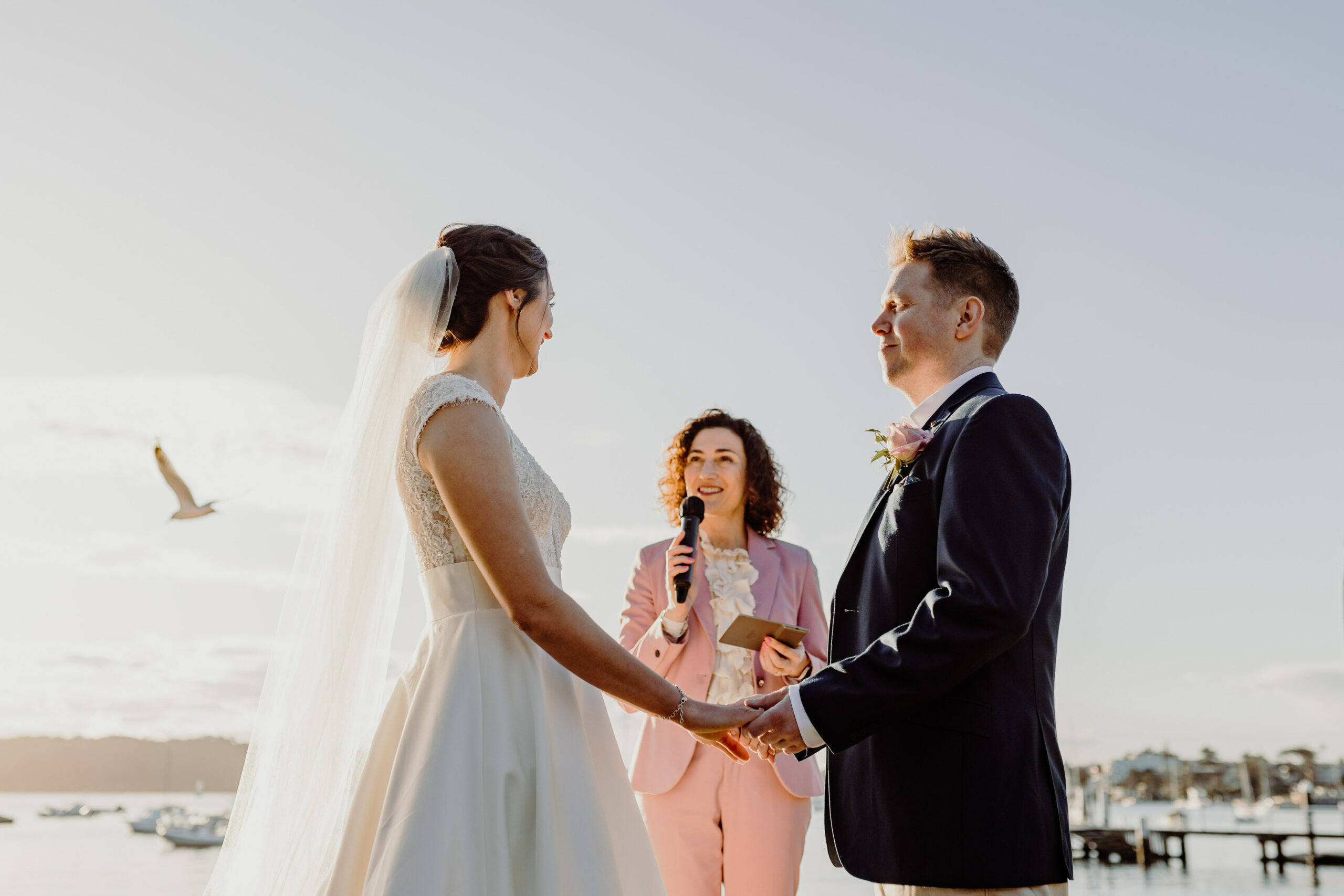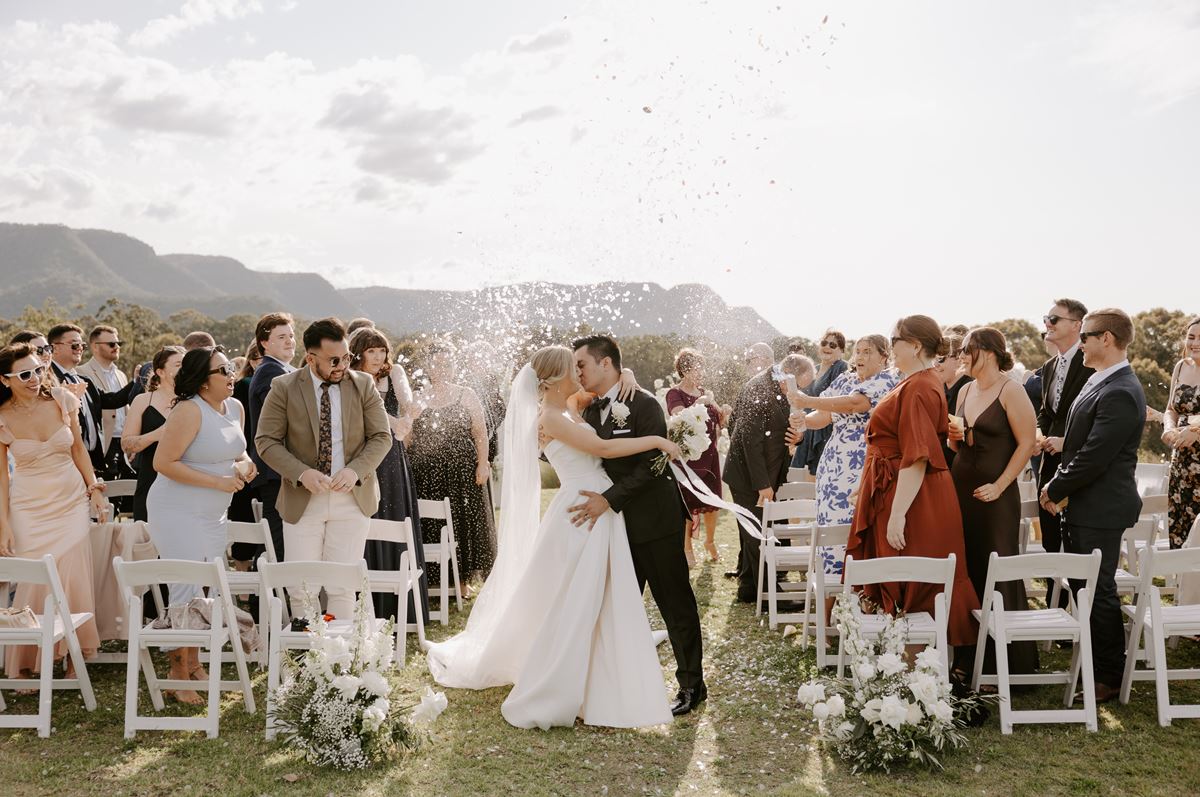 The biggest real money wedding mistakes
The biggest real money wedding mistakes
Should You Change Your Surname After Marriage in Australia?

So, you’re getting married. You’ve locked in the venue, said yes to the dress, and somehow survived the group chat with your bridesmaids. You’re ticking off the to-do list like a pro… until you hit that question: Should I change my last name after the wedding?
It’s a classic modern dilemma. Your Pinterest board is full of monogrammed “Mrs” mugs, yet your email address, career, and social media are all tied to your name. So, what’s a bride (or groom) to do?
Below, we break down the pros and cons of changing your surname, plus what’s involved legally in Australia and the alternatives if you’re still on the fence.

Should You Change Your Surname After Marriage in Australia? // Image by Bird + Heart Photography
How Name changes work after marriage in Australia
In Australia, you don’t need to apply for a legal name change to take your partner’s surname. Your official marriage certificate is accepted by most organisations as proof of the change.
You can choose to:
- Take your partner’s surname in full
- Hyphenate both surnames
- Keep your maiden name
- Use your maiden name professionally and your married name personally
If you want to change your name to something completely new (not your partner’s), you’ll need to lodge an official name change application with your state’s Births, Deaths and Marriages registry.
Each state has its own process and fees. Check your local registry for details:
NSW, VIC, QLD, WA, SA, TAS, ACT, NT.

Deciding whether to change your surname after marriage is a personal choice for every couple.
Pros: Reasons to take your partner’s last name
1. It feels romantic
There’s something undeniably sentimental about sharing a surname. It marks a new chapter and symbolises unity. It’s seeing your name side by side on mail, Christmas cards, or even your future children’s drawings and thinking, yep, that’s us now.
2. It simplifies family life
Sharing the same surname can make day-to-day life easier, particularly if you plan to have children. Having a single family name helps with school records, medical forms, passports, and travel bookings. It can prevent mix-ups at airports or appointments and saves you from having to explain family connections over and over.
3. A fresh start
Changing your surname can feel like a clean slate, especially if your maiden name carries complicated family ties or is simply hard to pronounce or spell. Taking your partner’s name can be an empowering choice, not because it’s expected, but because it feels right for you.
4. It can strengthen a sense of partnership
For some couples, sharing a surname deepens their connection. It’s a daily reminder that you’re building something together, whether it’s a home, a business, or a family. It can also create a sense of equality and togetherness that’s hard to describe until you see both names on your front-door mailbox or your first shared bank statement.
5. Tradition matters (to you)
There’s comfort in honouring customs that have stood the test of time. Taking your partner’s surname doesn’t have to feel outdated or submissive. It can simply be a personal nod to family heritage and the continuity of names across generations. It’s a beautiful thing; not something to apologise for.
Cons: Reasons to keep your maiden name
1. You’ve built your life with it
Your name represents everything you’ve built so far. It’s on your qualifications, your social media profiles, your work email, and maybe even your business cards. Changing it can feel like starting again, especially if you’ve spent years building a reputation or personal brand under your maiden name. For some, that disruption simply isn’t worth it.
2. It’s a paperwork marathon
Let’s be honest, changing your surname involves a lot of admin. You’ll need to update your driver’s licence, passport, bank accounts, super, insurance policies, and digital logins. It’s not difficult, but it can be tedious and requires patience. Even with checklists or name change kits, the process takes time and coordination. If you’re already juggling post-wedding tasks, it might feel like one more thing on a never-ending list.
3. You might simply prefer it
Sometimes the simplest reason is the most important one. You might just like your name. Maybe your partner’s surname doesn’t feel right, or you’ve always loved the way yours sounds. There’s no rule that says marriage has to come with a name change, and keeping your maiden name doesn’t make the commitment any less meaningful. It’s a personal decision, and preference is a valid reason to keep things as they are.
4. Independence still matters
Many people view keeping their maiden name as a reflection of independence and equality within marriage. It can serve as a reminder of your individuality and everything you achieved before saying “I do.” Holding onto your name can be empowering, especially if it reflects your cultural heritage, family identity, or a sense of self you don’t want to lose. For some, it’s a quiet statement of strength and continuity.
5. There’s no one-size-fits-all
Modern relationships look different for everyone. Many couples choose to hyphenate, keep separate surnames, or even create a new shared one altogether. What matters most is finding what feels authentic to both of you. Marriage isn’t defined by a surname. It’s built on shared values, mutual respect, and love. Choosing to keep your maiden name doesn’t make your marriage any less united, just uniquely yours.
If you’re on the fence: Options to consider
Hyphenate
Combining surnames can be a nice middle ground if you want to keep both identities visible. For example, Emma Collins-James keeps a link to her original name while showing connection to her partner. This option symbolises unity without losing individuality. The downside is that hyphenated names can sometimes sound long or feel awkward when spoken aloud. It can also create challenges for future generations if double-barrelled names start to multiply within families.
Keep both
Some people decide to take their partner’s surname legally while continuing to use their maiden name for work, social media, or creative projects. It takes a little extra organisation, but it allows you to keep both sides of your identity intact. This approach can work especially well if your professional reputation is tied to your maiden name but you still want to share a surname in your personal life.
Wait and decide later
There’s no need to rush your decision. You can get married, keep your name as is, and change it later if it starts to feel right. Many couples wait months or even years before making the switch. Marriage certificates don’t expire, and the process of updating your details is the same no matter when you do it. Giving yourself time lets the choice feel more natural instead of something you decide under pressure.

Want to make your wedding planning easier? Check out our simple planning tools

When love feels like coming home.
Name change checklist
If you do decide to go all-in on your new married surname, here’s a quick list of what you’ll likely need to update:
- PassportDriver’s licence
- Medicare
- Bank accounts & credit cards
- Superannuation
- Tax file number / ATO
- Utility bills (electricity, water, internet)
- Work email, LinkedIn, and business cards
- Social media accounts (optional, but let’s be real: it matters)
- Travel bookings and frequent flyer memberships
- Insurance policies
- Medical records
Start with the easy stuff (like your driver’s licence), then move on to the more annoying ones (like passports and bank accounts). Oh, and give your employer a heads-up too.
So, should you change your surname after marriage?
At the end of the day, there’s no right or wrong answer. Your name is part of your identity, and only you can decide what feels right.
Marriage is about love, partnership, and shared goals, not matching surnames. If taking your partner’s name feels meaningful, go for it. If it doesn’t, that’s completely fine too. You’ll still be just as married, committed, and fabulous either way.
Still tossing up your name change? Let Easy Weddings help with the rest of your planning… because the real stress is your seating chart. Find a curation of wedding suppliers right here.

Want photos like this? Check us out!
 Your essential guide to a wedding website
Your essential guide to a wedding website  How much does a wedding venue cost?
How much does a wedding venue cost?